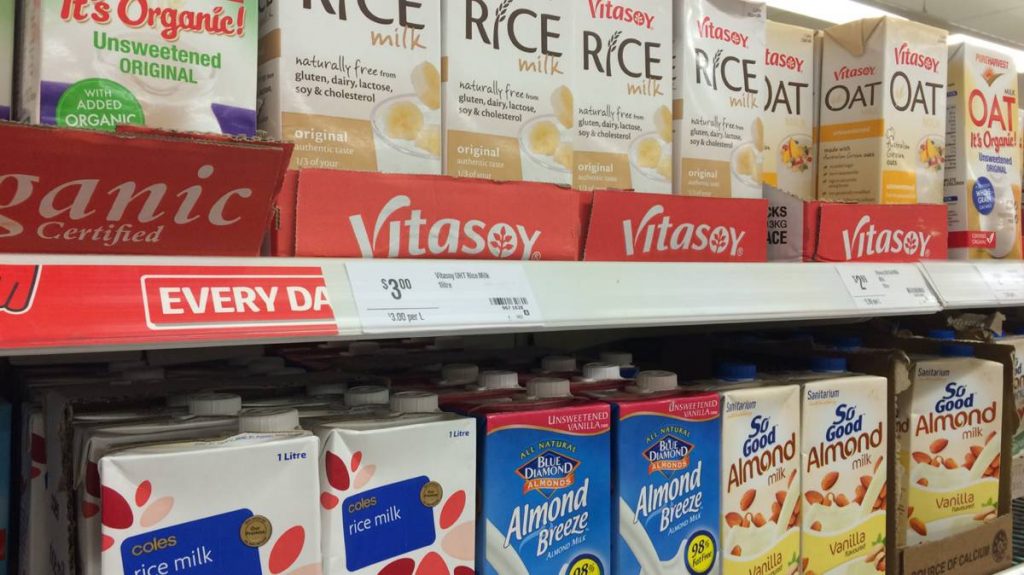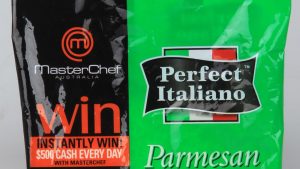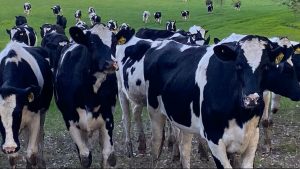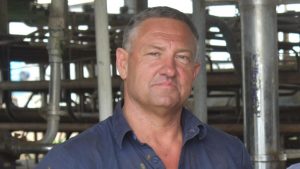
The inquiry will shine a much-needed spotlight on an issue that we have been pushing for many years now. It is better late than never.
Australian Dairy Farmers has long-argued that calling plant-based foods meat and milk does not pass the pub test for truth and honesty in labelling and marketing food to Australian consumers.
More recently, as a key member of a Ministerial working group, ADF has been seeking a change to the misuse of dairy terms and images in the marketing and labelling of plant-based alternative foods.
Australia needs to join other jurisdictions and ban plant-based products from using the ‘milk’ label. In 2018, France changed a law to stop these products being labelled like meat and dairy. More widely, the EU Parliament has voted in favour of banning plant-based alternatives using dairy terminology.
This call for change is not motivated purely by self-interest. Australian consumers stand to benefit too.
The problem consumers have is that many plant-based products use dairy terms like milk, despite not having dairy in their ingredients and falsely claiming to be as or more nutritious than healthy dairy foods.
Consumer research commissioned by Dairy Australia finds that 36pc of respondents perceive plant-based beverage alternatives to be as nutritious as dairy milk when this is not the case. When other research shows that at least $2 billion can be saved from Australia’s annual healthcare budget if everyone consumed the recommended intake for dairy nutrition, the magnitude of the problem gets clearer.
Unless food products are truthfully labelled and marketed to consumers, many Australians will continue to be deceived and be less likely to make the recommended dietary choices that keep them well.
Flaw in food labelling law needs to be fixed
Plant-based products get away with using the word ‘milk’ on labels and in marketing in Australia because of a flaw in our food labelling laws that needs to be fixed by the Federal, State and Territory governments.
The flaw exists in the Australia New Zealand Food Standards Code, which allows for products to use a term, provided the context makes clear the intention. The provision uses the example where ‘soy milk’ is permitted with ‘soy’ as the qualifier that sets the context and intention, which permits the use of the word ‘milk’.
ADF is calling for changes to the food standards in Australia so that consumers trying to make a healthy choice at the supermarket have the benefit of transparent and accurate product labelling.
Stopping plant-based products from using the word ‘milk’ even with clarifying terms will enable consumers to choose nutritious dairy foods. It is what other countries have done and it should happen in Australia. By restoring truth in product labelling, consumers can make more accurate food and beverage choices.
Industry guidance on labels much needed
Currently, there is an absence of specific industry guidance for the accurate labelling and marketing of plant-based alternatives to meat and dairy products. This guidance for assisting consumers to be clearly informed as to the nature, composition and nutritional value of plant-based alternatives is a priority.
A voluntary framework for the preferred approach, which includes a strict governance framework and early review period to monitor its effectiveness, is among several recommendations provided to the Agriculture Minister, David Littleproud, in March 2021. We have requested that this report be provided by the government as a key input to the Senate inquiry.
Until such time that the flaw in Australian law is fixed by the various governments, ADF supports the development of a whole-of-supply-chain voluntary standard that achieves truth in food labelling and marketing, with regulation to follow if a voluntary standard is unsuccessful in resolving this problem.
Innovation must not put our health at risk
Alternative foods comprise plant-based, synthetic and lab-cultured products. Alternative foods are a fast-growing segment of the food market. One estimate puts the growth in sales of plant-based food at 4.1 per cent per year.
ADF acknowledges that product innovation and diversification are strategies that food manufacturers, including those in the dairy sector, use to enter new markets. ADF welcomes innovation and diversification by any food manufacturer or processor so long as the products do not limit the ability of Australians to consume nutritious dairy foods at levels consistent with advice in the Australian Dietary Guidelines.
Too few Australians are consuming their recommended intake of dairy foods so any food innovation that restricts consumption of dairy foods (or vegetables, another under-consumed food group) is not welcome.
Competition from alternative foods that are labelled and marketed on their merits should not be viewed as a threat to the Australian dairy industry. However, plant-based products are using the word ‘milk’, co-opting the look and feel of dairy packaging, and claiming to have nutritional equivalency with dairy milk. They are trading on dairy’s reputation to gain a marketing advantage. This is unacceptable to ADF.
When Australians can live healthier lives by consuming more dairy and as a result $2 billion can be saved from the nation’s annual healthcare budget, it is madness to inhibit consumption of dairy foods.

























